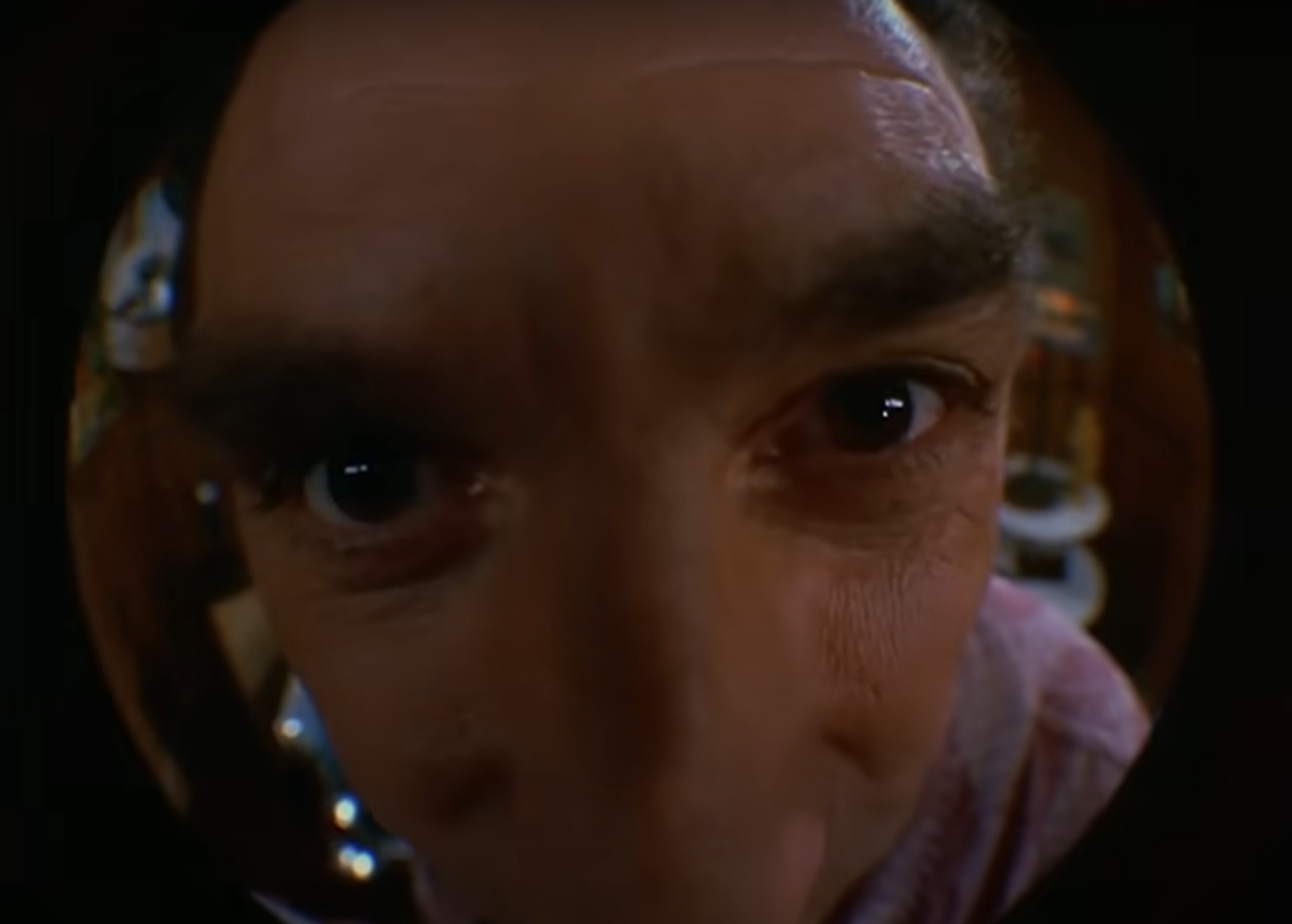“My whole life I’ve been a fraud,” is the opening line of David Foster Wallace’s best short story. He elaborates: “Pretty much all I’ve ever done all the time is try to create a certain impression of me in other people.” The story is excellent, and I highly recommend reading it yourself, but it can be summarized simply enough: the narrator recounts some choice episodes from his lifetime of fraudulence before he kills himself and explains what it’s like to die. What a twist, right?
The what-it’s-like-to-die part is pretty fun and interesting, actually. The view this story presents is that death leaves a person somehow outside of time, such that their experience of reality becomes nonlinear. Think of your experience in life as like a sentence, with events like words arranged in a definite order, given one at a time, while after death experience becomes more like an image, given all at once without prescribing any particular order in which it must be understood.

The disconnect between these linear and nonlinear perspectives comes up earlier in the story, and it’s explained well in one of Wallace’s masterful sentences.
This is another paradox, that many of the most important impressions and thoughts in a person’s life are ones that flash through your head so fast that fast isn’t even the right word, they seem totally different from or outside of the regular sequential clock time we all live by, and they have so little relation to the sort of linear, one-word-after-another-word English we all communicate with each other with that it could easily take a whole lifetime just to spell out the contents of one split-second’s flash of thoughts and connections, etc. — and yet we all seem to go around trying to use English (or whatever language our native country happens to use, it goes without saying) to try to convey to other people what we’re thinking and to find out what they’re thinking, when in fact deep down everybody knows it’s a charade and they’re just going through the motions.
This, I find, is the most challenging thing about trying to share anything substantial with the people in my life. Things that just make sense in the context of my own thoughts feel like they take a whole lot of explaining before they’ll begin to resonate with anyone else. It’s isolating, yet it yields a further paradox: I can take comfort in the fact that this alienating experience is far from unique to me. Wallace was obviously familiar with it, and he was confident that his readers would be, too.
This story resonated with me in a powerful way when I first read it. I was a junior in high school, and I’d entertained thoughts of suicide but never taken them too seriously. My life was really good in a lot of ways, but I felt profoundly isolated. It was a mixed blessing to be a gifted child, and I’ve found the blessings of being a gifted adult still adulterated by this sense of isolation.
It’s great that so many things come so easily to me, but I grew up getting what I felt were undue amounts of praise from parents, teachers, and other authorities for accomplishments that were so effortless they felt not just meaningless but insulting to have to go through the motions of. I got by by doing my best impression of a normal person, but even when I fit in, I stood out. My life felt fake, performative — the valedictory address I delivered at my middle school graduation described my class’s experience as like a movie (the speech was a huge hit, and everybody loved how original it was, in case you were wondering) — and I could really relate to the sense of fraudulence described in this story when I discovered it in high school.
When the story’s narrator finally gets around to explaining what it’s like to die, he finds its closest analogy in the experience of the living to be the aforementioned nonlinear experience of your inner life, and he gives us a nicely evocative metaphor for it.
The truth is you already know what it’s like. You already know the difference between the size and speed of everything that flashes through you and the tiny inadequate bit of it all you can ever let anyone know. As though inside you is this enormous room full of what seems like everything in the whole universe at one time or another and yet the only parts that get out have to somehow squeeze out through one of those tiny keyholes you see under the knob in older doors. As if we are all trying to see each other through these tiny keyholes.
Death, in this view, unlocks the door, allowing us to visit one another’s “rooms” for an intimacy and a broadening of perspective unattainable in earthly life. But a big part of earthly life (for all but the beasts or the gods among us) involves managing the material each of us squeezes out through our own personal keyhole to show to the world. How is it possible to be authentic if you’re only ever giving the world a fragment of yourself?
The key is where you turn your attention. Are you focused on bringing forth what is within you, or are you focused on bringing forth something other people will like. You should do both, of course, but it’s a question of priorities. Are you trying to present an image of yourself that is faithful to your inner life or to the demands of the world? Are you yourself with others, or are you tailoring your social persona to fit the cardboard cutout of you that people keep in their heads?
Wallace’s narrator discusses that the door has a knob and can open, but he fails to mention that each person’s door also has a peephole. We see the people in our lives, standing, as it were, at our doors and reacting to everything that comes out of our keyholes. Do they smile or frown? Do their faces stretch out in shock or crinkle up in disgust? Do they like me?
Wanting to be liked, to look good, is only natural, but looking good is, ideally, what happens when you are seen to actually be good, and it’s this, the actually being good, that should be the main thing in life. (Not just as a means to looking good, either; you have to mean it.)
Because we can see who’s out there, we have to live with the temptation to sacrifice an authentic life for one lived in compliance with others’ expectations. But if we have the strength to live authentically, we have the power not just to change people’s expectations of ourselves but to enrich their own understanding of what it is possible for a human being to be. Great works of art, along with great athletic achievements, great feats of courage, great acts of love, and other instances of human transcendence (including, no less, great crimes and atrocities) all raise the same vital question: What must a person be like, inside, to do that? You could call them reverse peepholes.
I’ll let one of Wallace’s jaw-dropping run-on sentences have the last word here.
Even as I wrote my note to Fern, for instance, expressing sentiments and regrets that were real, a part of me was noticing what a fine and sincere note it was, and anticipating the effect on Fern of this or that heartfelt phrase, while yet another part was observing the whole scene of a man in a dress shirt and no tie sitting at his breakfast nook writing a heartfelt note on his last afternoon alive, the blondwood table’s surface trembling with sunlight and the man’s hand steady and face both haunted by regret and ennobled by resolve, this part of me sort of hovering above and just to the left of myself, evaluating the scene, and thinking what a fine and genuine-seeming performance in a drama it would make if only we all had not already been subject to countless scenes just like it in dramas ever since we first saw a movie or read a book, which somehow entailed that real scenes like the one of my suicide note were now compelling and genuine only to their participants, and to anyone else would come off as banal and even somewhat cheesy or maudlin, which is somewhat paradoxical when you consider — as I did, sitting there at the breakfast nook — that the reason scenes like this will seem stale or manipulative to an audience is that we’ve already seen so many of them in dramas, and yet the reason we’ve seen so many of them in dramas is that the scenes really are dramatic and compelling and let people communicate very deep, complicated emotional realities that are almost impossible to articulate in any other way, and at the same time still another facet or part of me realizing that from this perspective my own basic problem was that at an early age I’d somehow chosen to cast my lot with my life’s drama’s supposed audience instead of with the drama itself, and that I even now was watching and gauging my supposed performance’s quality and probable effects, and thus was in the final analysis the very same manipulative fraud writing the note to Fern that I had been throughout the life that had brought me to this climactic scene of writing and signing it and addressing the envelope and affixing postage and putting the envelope in my shirt pocket (totally conscious of the resonance of its resting there, next to my heart, in the scene), planning to drop it in a mailbox on the way out to Lily Cache Rd. and the bridge abutment into which I planned to drive my car at speeds sufficient to displace the whole front end and impale me on the steering wheel and instantly kill me.
(emphasis mine)


One response to “Wallace’s Keyhole”
Awesome and highly relatable post. As a kid, I always had the wish or desire to have “clairvoyance” or a better understanding of my inner thoughts and feelings. As I grew older I came to understand that everyone has that same trouble of putting into words (or even into coherent thoughts like the entry suggests) what was actually going inside my thoughts.
There’s a comfort in knowing that everyone is going through that same struggle. Being able to see through those keyhole and getting a small glimmer into someone’s “soul” are rare moments. It’s usually just some offhand comment or gesture that a person does where you see something they didn’t necessarily intend to display.
Again, really awesome and thought provoking post